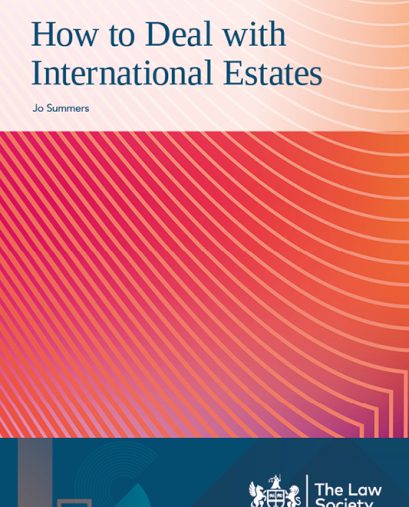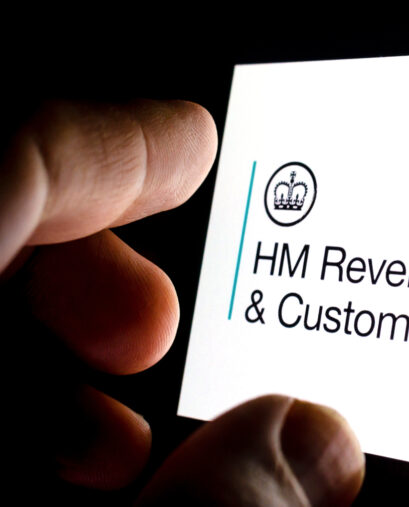Going digital – Understanding tax and supply chain risk of international trading

Online marketplaces offer exciting commercial opportunities for buyers and sellers. But there are risks attached to online and international trade - even if your business hosts the online market and does not buy or sell goods itself.
The tax and compliance risks encountered by your business from online international trade, will depend on the type of business you are, who you trade with and the jurisdictions in which you and your supply chain operate.
Generally speaking, the more jurisdictions in which you trade, the greater your exposure to tax and compliance matters overall.
For example, your company could be headquartered in one jurisdiction, tax resident in another and be trading with people all around the world, which can bring with it a host of potential risks – from money laundering and fraud in the supply chain, to modern slavery issues and the VAT and customs implications of any import / export business.
Thankfully, there are a range of safeguards you can, and should, put in place to protect your business.
Not doing so, could open you up to problems ranging from not getting paid for goods and services or falling foul of anti-money laundering legislation, to incurring significant fines from HMRC or other tax authorities or even potential criminal investigations!
But what should you be thinking about and how can you protect yourself and your business? Alex Peebles, Tax Partner, discusses a range of ways to identify and mitigate tax and compliance risks that are likely to arise from online international trade.
1. Tax compliance / your own tax position
Tax, customs duties, VAT compliance and other local taxes in jurisdictions where you trade or have a presence, can all adversely impact your business.
Tax compliance is vital and you need to calculate and pay your own tax liabilities in the United Kingdom and any jurisdictions in which you operate, to avoid potential investigations or fines by HMRC.
There are a variety of ways you can protect your business and the easiest way to start, is to focus your trade efforts on one or two jurisdictions to begin with, so you can limit your exposure in different tax regimes.
Obtaining expert advice about your tax liabilities in that jurisdiction is important. Whilst it is not legally possible to contract your way out of tax and customs obligations, you can amend your trading conditions to ensure that they include appropriate warranties or indemnities.
Depending on the extent of your international trade, you might also consider engaging an import or customs agent. You may also need advice about double taxation relief if you are taxed on the same income in more than one jurisdiction.
You also need to make sure that your digital infrastructure is programmed for the accountancy rules in the country in which you’re based.
Also make sure that you know and plan for any circumstances in which you could be responsible for one of your trading parties’ tax or customs duties.
When trading in the UK and European Union, your business could find itself liable to repay VAT claimed on input tax under the Kittel principle if the business knew, or ought to have known, that it was participating in transactions connected to the fraudulent evasion of VAT.
In order to claim input tax, you also need to ensure that the invoices you issue, contain the necessary information.
2. Supply chain and tax risk management
Once you are satisfied that your own tax and regulatory position is secure, it is important to think about the unexpected risks you could face. This includes the potential for tax non-compliance or fraud in your supply chain.
To avoid this, make sure you understand the extent of your legal duties so that you can minimise potential risk to your business.
In the UK, you have legal duties to prevent tax fraud, criminal finance and money laundering in your supply chain, these include the legal obligations under Part 3 Criminal Finance Act 2017 to prevent domestic and international tax evasion.
Failure to ensure your supply chain is free from tax fraud and other criminality, can incur stiff penalties, so it is advisable to undertake an in-depth analysis / due diligence of your supply chain.
This will help to demonstrate to the tax authorities that you have carried out appropriate research into the businesses with whom you trade, to establish that there is no fraud or tax non-compliance in your supply chain. But how should you achieve this? It is all down to effective due diligence.
3. Due Diligence
Due diligence is key to limiting the risk of your business trading with a fraudulent or non-compliant business, as well as to demonstrate to tax authorities that you take your supply chain obligations seriously.
As a technology driven business, you may want to automate the process as much as possible. But take care – automation of all parts of the due diligence process could leave your business, and its directors, exposed to allegations of tax non-compliance and associated penalties.
Due diligence is rarely effective if it is limited to a “tick box” information or evidence gathering exercise.
The critical component is an intelligent mind – human or artificial – that processes the information obtained that will identify non-compliance. This means you need to identify the types of non-compliance or fraud that may affect your supply chain.
Your processes should include a policy that identifies when, and in what circumstances, someone employed by your business ought, for instance, to make personal contact with a trading counterparty to verify their tax compliance. This might be appropriate where initial due diligence checks point towards unusual trading activity.
It is also worth bearing in mind that you will need to justify your due diligence to tax authorities, and they may not be well placed to understand coding.
You should also think about any ‘special’ tax obligations and additional tax liabilities in relation to certain goods, such as computer chips for example, even if you do not own or import goods.
Risks in your supply chain can be further mitigated by undertaking retrospective audits but, once again, these audits should be focused to addressing the red flag issues.
As a small, fast-growing business, it can be hard to keep up with the various tax and regulatory requirements of you and your business – not just in the UK, but in the various jurisdictions in which you are trading.
Of course, we would say this, but it really does pay to invest in the professional legal advice to support your business throughout this fast-paced stage of business growth. Not only will it ensure that you are set up to grow in a tax efficient and compliant way, it will also protect you and your business should things go wrong.
Photo by Roberto Cortese on Unsplash
For more information about how Jurit can help, whether with a one-off requirement or on a flexible or retained basis, get in touch with Alex and or Anthony.
Alex Peebles Partner - Tax Disputes +44 (0) 20 7846 2370 alex.peebles@jurit.comAnthony Garrod, Partner - Commercial
Please note this paper is intended to provide general information and knowledge about legal developments and topics which may be of interest to readers. It is not a comprehensive analysis of law nor does it provide specific legal advice. Advice on the specific circumstances of a matter should be sought.









